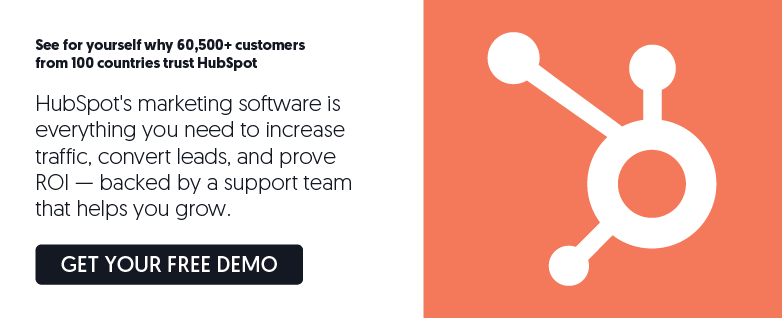How many times have you looked at your Friday afternoon marketing to-do list and thought ‘that looks like a Monday problem’? Piling up those tedious but necessary tasks creates a stressful workload, and can lead to expensive and timely fixes if they are done incorrectly.
But this is all a thing of the past now. As we all know, AI is the tech puppet which gladly takes care of all of tomorrow’s problems.
Amidst crazy schedules and packed-up workloads, automation is a 21st Century time saver. In fact, that’s an understatement. It’s a lifesaver. Not only does it save time and money, but it has also thoroughly revolutionised company operations and job roles, probably forever.
We have become automated to use automation
Automation saves time, money and resources. Because it’s so great, it’s become extremely popular for businesses of all shapes and sizes. As we find ourselves too accustomed to AI life, we've become automated to use automation.
It’s become an integral element of many marketing jobs, with the majority of roles being moulded around AI to create new roles that simply didn’t exist 20 years ago.
But it stretches further than just marketing. All departments of a business benefit from automation: AI can help a business send out invoices, organise sales quotes, calculate purchases, and manage HR systems.
And because it’s so great, everyone wants to use it. But automation is such a broad spectrum. What used to be one or two handy tools has materialised into a list of varied AI systems suited for different needs.
There is no one-size-fits-all solution anymore. Some businesses benefit way more from certain types of automation, depending on their function. But everyone wants to optimise their money and time-saving methods. So, with so many choices out there, how should you choose an AI marketing system which works best for your business?
As always, it depends on your buyer persona
To be honest, any business of any size can use automation to its advantage. The varying factor? Audience.
When making decisions in marketing - it always, always boils down to your buyer persona (that's your customer avatar.)
The way you use AI for your marketing ultimately affects them in the end, so to successfully implement an AI tool, consider your customer first.
For example, Gen Z audiences would benefit from social media automation marketing messages on Instagram and releasing tactically-timed TikTok videos. But where Gen Z might wake up and check TikTok, a 9-5 working audience might prioritise checking their emails early in the morning. So if your buyer persona were in the 'small business owner' category, you might target an automated email to arrive in their inbox on a weekday morning after they've logged in to start their day.
There are a ton of different marketing automation tools that can benefit a business, such as:
- Email marketing
- Social media scheduling
- Automated responses and chatbots
- Lead prioritisation
- Text/WhatsApp marketing
- Content creation software
Email marketing
One of the most popular types of automation is email marketing automation. It successfully and efficiently sends out emails to your prospects, to convert them into leads.
When using email marketing automation…
- Keep the tone as human as possible and use personalisation. This keeps the transition between AI and human as smooth as possible when the customer engages with an automated email.
- Choose appropriate times to send the emails to your customers. You're aiming to be as close to the top of their email list as possible when they look at their emails.
- Set up your emails so they are easily tweaked depending on the customer category (preferences, qualities, or demographics)
Social media automation
Scheduling your social media posting is the best way of channelling the attention of your buyer persona. Just like email marketing, different posting times are better suited to different audiences.
Using a CRM for your social media scheduling allows you to post on social media with a multi-platform approach, allowing you to easily alter the content to suit your different platforms. Not only will your AI post for you (which is essential for a weekend social media schedule), but it tracks your social media engagement automatically, allowing you to tweak posting according to the data you've collected.
Lead prioritisation
No one enjoys tapping in numbers on an excel spreadsheet until they have a numb bum. Instead, customer databases can be lead prioritisation cleverly prioritises the leads worth spending your precious time on.
For any growing business, lead prioritisation helps you work on those trusty sales quickly and efficiently. Lead prioritisation successfully sifts through your leads to direct and funnel your marketing to promising leads. Don’t spend valuable time generating overly individualised content for non-engaged prospects.
Which marketing AI is best for me?
If you're not sure how to optimise your business's automation systems, go back to the buyer persona drawing board to refresh yourself on your customer's habits. What kind of time are they most active on social media? Are you tracking the right leads? How are they most likely to interact with the marketing nets you've cast out?
Figuring out your customer basics will provide a marketing algorithm for the rest of your marketing decisions. Use our handy Buyer Persona Guide and Template.
CRMs are a marketer's best friend...
Integrating a CRM is the best way of handling your marketing AI. That's because it can handle all of your AI tasks under the same interconnected roof. This is where marketing and sales really come together.
Lead prioritisation is great, but what's a good lead if there is no targeted email to chase them? Our good buddy HubSpot is our favourite CRM provider, but there are a ton of different CRM systems on the market. As an industry leader in automation, HubSpot makes your life as easy as possible and sweeps up the boring tasks, so you'll never have to spend hours punching data into Google Sheets ever again.




